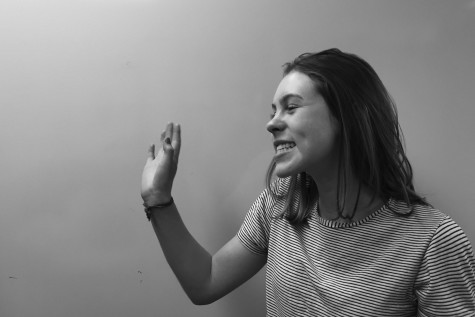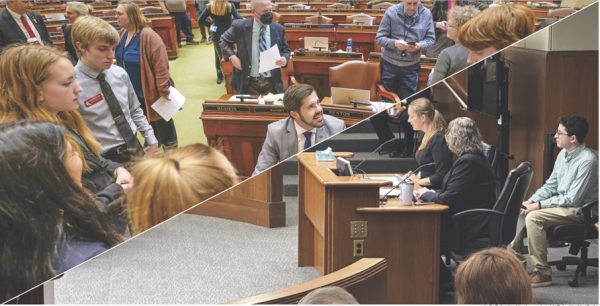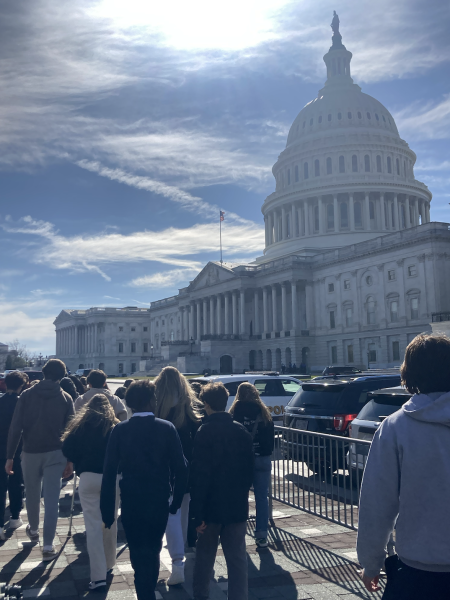Further embracing religious diversity at Blake
Traditionally, most American schools have been explicit in their celebration of the holiday season, giving students a holiday or winter break over Christmas time. As America has been predominantly Christian in composition, with 75-80% of Americans identifying as Christian, such a focus on one religion went unchallenged and mostly unnoticed by the majority. But with a growing religious diversity within Minnesota and our student body, Blake is working towards accommodating the Jewish High Holidays (Yom Kippur and Rosh Hashanah) and Muslim holidays (Eid Al-Fitr and Eid Al-Adha), as these holidays don’t fall over a designated break. Scott Flemming states, “We’re trying to figure out how to not schedule activities, such as sports, concerts, and larger events on these holidays to recognize that a significant amount of students of our school community need to observe on these days.”
While the Minnesota State High School League forbids sports teams from practicing on Sunday, last year the two most important cross country meets to qualify for state were held on Rosh Hashanah and Yom Kippur. Although this decision was not intentional, the MSHSL neglected to pay attention to the Jewish liturgical calendar. Flemming responds that “as a school, we were in a difficult situation; do we send athletes or do we protest?” As a country with a 75-80% Christian population, it makes sense that many of our rules adhere to the Christian religion. But since the United States is religiously diverse, it is crucial to make religious accommodations for all students.
Sam Omar ‘16 says that “the two biggest religious holidays that I celebrate [Eid Al-Fitr and Eid Al-Adhar] take place during the school year. Since my mom is more religious than my dad, she advocates for us to pray and celebrate, but my dad doesn’t want us missing school, so there’s always a conflict about it.” Although Omar missed school for these holidays his freshman year, he chose not to this year because he “didn’t want to fall behind.”
Ikbal Ahluwalia ‘18 has had similar experiences as those of Omar’s, as he tries to celebrate with his family but also feels like he has to come to school on important Sikh holidays throughout the year. “It’s difficult to do homework and stay caught up with school on the night of our holidays because I have to go home and celebrate but also do schoolwork. In my religion, there are ten founders or Gurus, so each of their birthdays across the year are important holidays. Sometimes my family and I can’t even go to temple because I have school and [extracurricular activities].”
In an effort to allow students of any religion to miss school for an important holiday, Blake allows students to be excused for four religious holidays a year. Although some of those traditions have one family while others have hundreds of families, it’s important to recognize every student’s religion.
One simple accommodation to a family could mean the world to that student who otherwise would not be able to participate in their celebration. Flemming says, “We chose four [religious observances for the calendar] because that was enough to cover important dates, but it’s also not too many where we start to get into differences among religions. For example, all Muslims believe that Eid Al-Fitr and Eid Al-Adha are holy days. We try to have enough to be really representative and make sure that we’re hitting the important observances, and four seemed to be the right number.”
These additions to the calendar are certainly a step forward, but many students still have difficulty with missing school. Isabella Siskin ‘15 explains, “it’s hard to miss school on [the two Jewish High Holidays] because we have to both celebrate these days but then also make up homework… It would be nice to have that time off from school, but I also don’t think it’s very realistic for Blake to cancel school altogether.” Omar remarks, “Since Christmas falls over winter break, it’s so much easier for students who are Christian. But from personal experience, for Muslim holidays it’s just another day at school, which is okay, but it also creates conflict for whether or not I should go to school or observe my holiday.”
Although it may seem unrealistic for this school year, as Blake becomes more diverse with students who practice many different religions, it could become plausible to have a day off of school for holidays that happen during the school day. Asad Rahmatullah ‘15 says, “If Blake decides in the future to give a day off for the whole school on those holidays, I don’t think any students would object to having an extra day off of school. But I think it would be nice if Blake would consider later on to honor Eid for Muslims or Yom Kippur for Jewish students, maybe offering to give us a half day of school.”
Missing a day of school means missing a lot of work, which adds unneeded stress to the students observing their holidays. The Gregorian calendar is organized around Christian holidays; we have Christmas break and many activities are forbidden on Sunday. Rahmatullah further notes, “I haven’t missed any days of school this year, but I think it has to do with the way our calendar is set up…. I think Blake is also really good about giving students who celebrate other holidays the ability to take days off without penalty.” As Flemming states, “it’s evolving and imperfect, but our goal is to become more increasingly responsive because as [Blake] grows in diversity, we have to also become more and more inclusive.”
Changing Blake’s calendar to create better accommodations for each student and family is a work in progress. After all, not long ago was Winter Break called Christmas Break. Although school is not cancelled for every religious holiday, Blake recognizes its students’ religious traditions and the importance of celebrating, even if it’s away from school.

Anneliese is currently an Editor Emeritus. She has been an editor since the fall of her Sophomore year. Previously, Anneliese was the editor of Front...
















